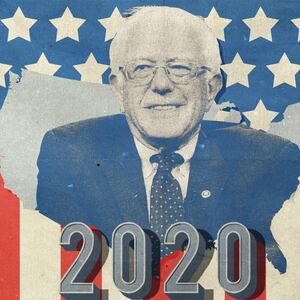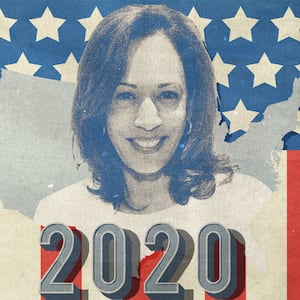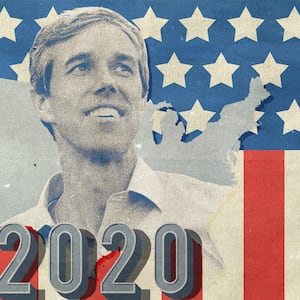The 2020 Democratic primary field may be the most wide-open in recent memory—perhaps even in the history of American politics—and as candidates prepare to announce presidential bids, there are already arguments being made as to their respective strengths and weaknesses.
To get a sense of what experts think will prove helpful and harmful for candidates who have announced their intention to unseat President Donald Trump, The Daily Beast spoke with opposition researchers and operatives in both parties—people whose job it is to understand and exploit the vulnerabilities of those running for office.
Today, we look at Howard Schultz, the billionaire founder of Starbucks Coffee whose flirtation with an independent run for the White House has infuriated Democrats and the Twitter commentariat alike. While his past business experience, combined with Trump’s soft poll numbers among a certain slice of the conservative electorate, may add a little wind to Schultz’s back, opposition researchers told The Daily Beast that Schultz’s insistence on an independent run—and voter distaste over his perceived egotism—may kill his candidacy in the crib.
ADVERTISEMENT
“If he wants to spend $300 million of his own money so he can look back in 30 years and see that he had campaign buttons with his name on them, good for him,” said Steven D’Amico, a political researcher and strategist. “This candidacy seems to me to be a vanity project aimed at proving that he can achieve some sort of good outcome as a third-party candidate, and if he runs, he’s going to end up spending a lot of his personal fortune to do it with a very slim chance of the outcome he’s looking for.”
The perception that Schultz, who built a single Seattle coffee shop into a global brand and whose worth is estimated to top $3 billion, is a dilettante seeking public affirmation instead of public office is an impossible stumbling block to his candidacy, another opposition researcher said.
“It’s a vanity run,” the researcher, who is currently unaligned with any declared presidential candidates, told The Daily Beast. “He found enough suckers, I mean consultants, to say, ‘sure we’ll grift, I mean work for you.’”
Under normal circumstances, researchers said, an independent run for the White House is a difficult prospect. After all, no president has been elected as an independent since George Washington. But with an increasingly polarized American electorate, researchers said, that narrow window for success is effectively closed.
“The Democratic Party and Democratic voters are so focused on making sure that Trump doesn’t get another four years that they are going to be very concerned about a Ralph Nader effect,” D’Amico said. “That drive is going to really hurt his chances of occupying a significant chance among center and center-left leaning voters.”
That, D’Amico said, leaves right-wing voters who are intrigued by the idea of a president who built a billion-dollar business—but frustrated by the president’s antics over his first term.
“There’s a certain type of voter who likes folks with business experience,” D’Amico said. “Normally, those are the sort of voters that were attracted to Trump, and some of those voters who may be disillusioned with Trump and may not be willing to vote for a Democrat might consider him as an alternative.”
But unfortunately for Schultz, “it’s a very small slice of the electorate. I don’t think that’s a big enough slice to win a presidential election, or even a state.”
“You’re looking for your sort of [Ross] Perot voter type,” D’Amico said.
But beyond the question of an independent’s place in a polarized election, Schultz faces more concrete issues to his candidacy.
“There are a lot of structural weaknesses, and there are a lot of strategic weaknesses,” said one opposition researcher. “Your field program is gonna be very far behind both of the major political parties, which makes things very difficult.”
Schultz’s personal fortune may come in handy compensating for that lack of a party infrastructure, D’Amico said, although the lack of resources and help from a national political infrastructure is a high hurdle to clear.
“The fact that he can self-fund is also a strength,” D’Amico said. “Ballot access is going to be a problem for him—that’s something you can fix with money.”
But Schultz’s willingness to dig into his own pockets, a researcher said, has made him a target for unscrupulous political advisers who see him more as a mark than as a potential president.
“It’s fucking bullshit—they are milking that dude,” the researcher told The Daily Beast. “It’s everything that gives politics a bad name.”
Any campaign built on stroking the ego of the principal—well, almost any campaign—is bound to fail, the researcher said, especially after such a rocky exploratory period.
“His rollout has been so disastrous—it’s hard to believe that he could possibly go in and be anything other than a spoiler at this point,” the researcher said.
“The thing about vanity is, it’s tied to ego, and when he’s getting his ass handed to him repeatedly in the press and he’s polling at 4 to 5 percent, he may not decide to go forward,” the researcher said. “It’s brutal to be rejected by 90 percent of the American public.”








